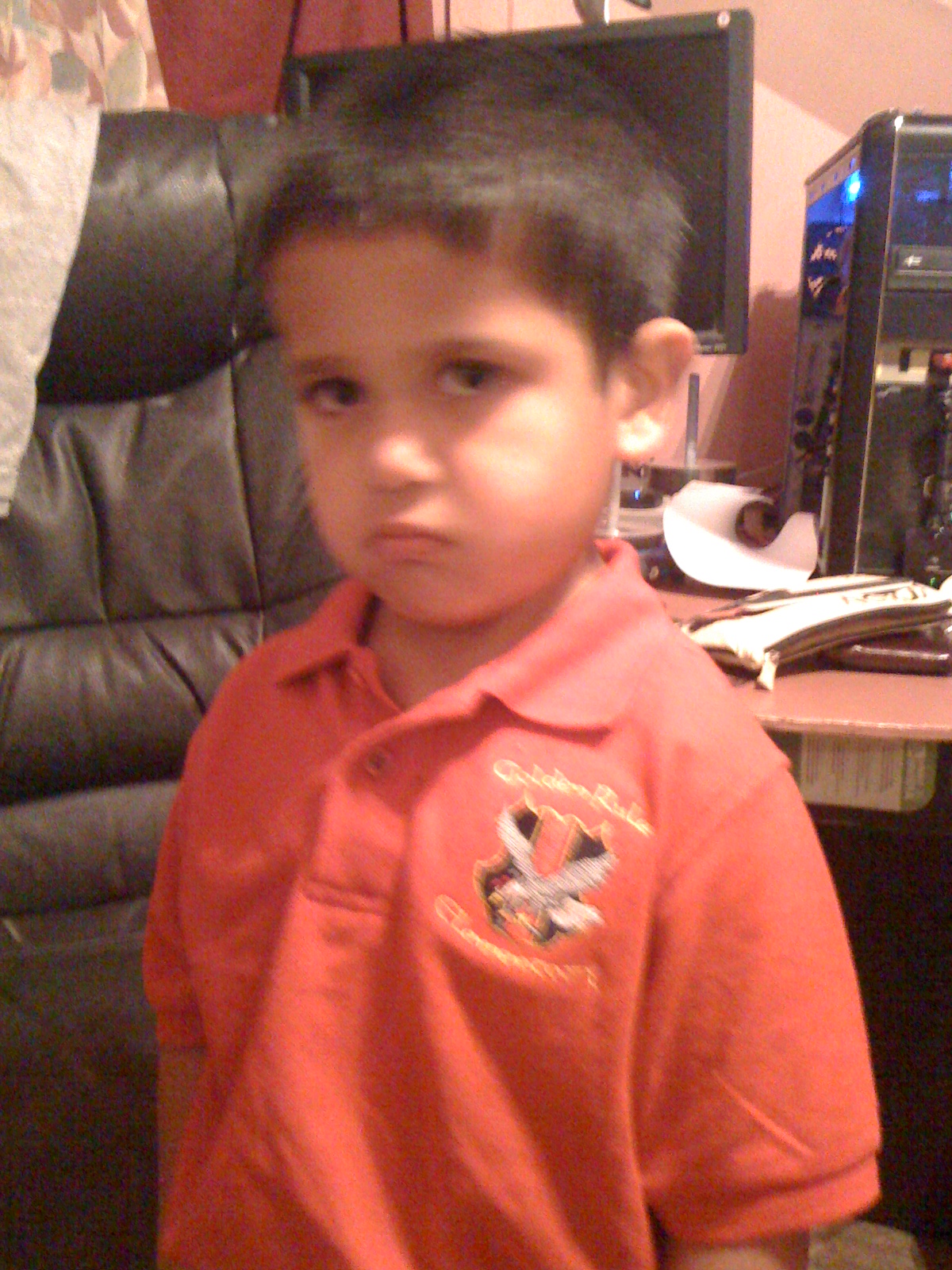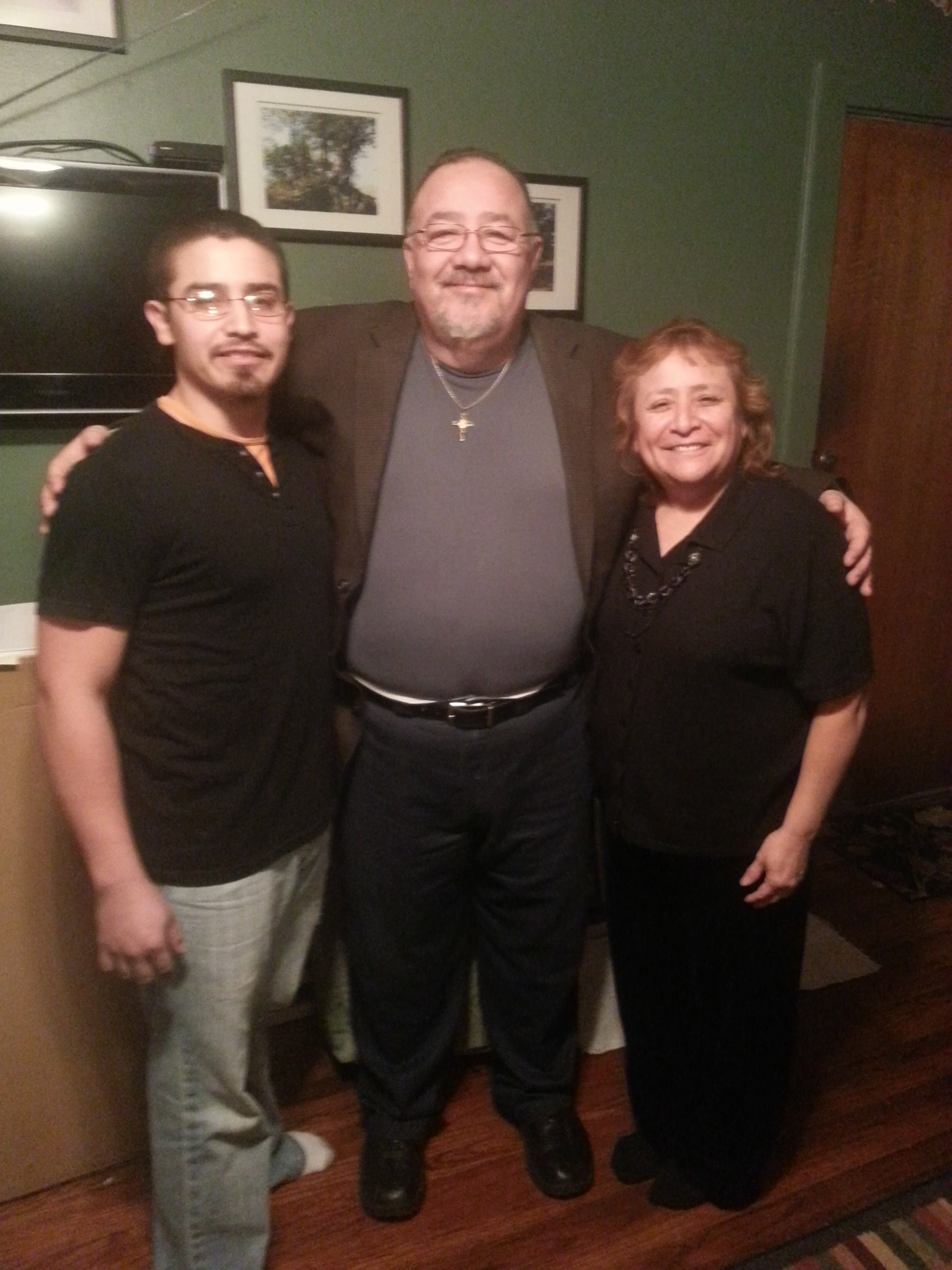 One phenomenon which I do not believe is solely a Latino problem is that of how we deal with our adult children. As a counselor, I have been invited to many churches to speak on this subject. The reason they invite me is not that they just want to learn about the intricacies of dealing with adult “children,” but because the problem is prevalent within the church environment. Pastors tend to address this problem by preaching to the adults on how bringing up a child “in the Lord” will mean they will not “stray from it” when the children are older (“Train up a child in the way he should go, even when he is old he will not depart from it” – Proverbs 22:6). While that sounds great when you read it in the Bible, the application of that principle gets lost when culture gets involved.
One phenomenon which I do not believe is solely a Latino problem is that of how we deal with our adult children. As a counselor, I have been invited to many churches to speak on this subject. The reason they invite me is not that they just want to learn about the intricacies of dealing with adult “children,” but because the problem is prevalent within the church environment. Pastors tend to address this problem by preaching to the adults on how bringing up a child “in the Lord” will mean they will not “stray from it” when the children are older (“Train up a child in the way he should go, even when he is old he will not depart from it” – Proverbs 22:6). While that sounds great when you read it in the Bible, the application of that principle gets lost when culture gets involved.
In the Mexican culture, they see their “children” as children (as in kids) no matter how old they get. As a US-born citizen of Mexican Ancestry, I cannot completely relate to that. I think in “American” terms. To me, a person is no longer a child when they reach the legal age of adulthood. In Texas, that is the age of eighteen years. After that, they are, by all rights, adults. To be treated as “children” only serves for them to respond as children because that is how they will understand others (especially their parents) see them. My two sons are exactly that, my sons. They are not my “children.” They have become legal adults, have “grown up” and I must respect their adulthood so that I can hold them accountable to the responsibilities and obligations they have incurred.
On the contrary, Mexican families tend to do the opposite. You will find adult “children” living at home in their 20’s, 30’s and even older often. You will hear the parents refer to their adult “children” in terms of endearment usually meant for underage children. “Panchito,” for instance (literally meaning “little Pancho,” as in a child) will be used to refer to a man in his 40’s by his mother and/or father. The use of the son’s name, “childized” like that (yes, I know I made up a word), usually means two different things at the same time. First, the parents are having trouble relating to their son as an adult, because that would mean they themselves have to learn to deal with their son as adults themselves, and possibly hold him accountable by imposing consequences for “Panchito’s” bad behavior. Secondly, Pancho will tend to behave in a manner in conformance with his parent’s use of his name and according to the indicated expected consequences. In other words, “Panchito” would expect his parents to excuse him and make excuses for him because he is their “child.”
 The resultant problem with this is that these unwary parents soon learn that they have lost “control” of their adult “child,” as though they were supposed to eternally have and maintain that control. The biggest mistake Mexican parents make in the United States is that they continue to think that the Mexican culture they brought with them from Mexico and into the United States will continue to be the culture of their children when they grow up here in the US. That is mostly a lie. The “American” culture (whatever we define it to be) will have the greater effect on the kids as they grow up here, and they’re “culture” will change. The result will be that the “kids” will start behaving differently. They will start believing that they have rights (which they do). And, they will start to struggle against a culture (the Mexican one which was imported), while at the same time trying to comply with it. This will cause a type of dilemma in those adult “children.’ This dilemma will then convert into antagonism between the parents (who will insist on continuing an imported culture) and their offspring who now have a new culture (of which they will refuse to discard).
The resultant problem with this is that these unwary parents soon learn that they have lost “control” of their adult “child,” as though they were supposed to eternally have and maintain that control. The biggest mistake Mexican parents make in the United States is that they continue to think that the Mexican culture they brought with them from Mexico and into the United States will continue to be the culture of their children when they grow up here in the US. That is mostly a lie. The “American” culture (whatever we define it to be) will have the greater effect on the kids as they grow up here, and they’re “culture” will change. The result will be that the “kids” will start behaving differently. They will start believing that they have rights (which they do). And, they will start to struggle against a culture (the Mexican one which was imported), while at the same time trying to comply with it. This will cause a type of dilemma in those adult “children.’ This dilemma will then convert into antagonism between the parents (who will insist on continuing an imported culture) and their offspring who now have a new culture (of which they will refuse to discard).
A New and Different Culture
To make matters worse, many of these people with imported cultures also struggle with the current technological impact on today’s American culture. Many of these people from Mexico are not well acquainted with the use of computers, laptops, tablets, and will mostly use a cell phone for phone calls. The fact that so many millennials and youth tend to live their lives with their faces glued to their devices is baffling for those people with imported cultures. The “great divide” between the parents and their children gets even greater.
The fear of these parents with imported cultures is that the children will no longer be controlled by that same culture. The Mexican culture (I was told by a Mexican friend) is the manner in which Mexicans tend to get things done among themselves, even here in the United States. By speaking Spanish, instead of English (my native and first language), by following Mexican traditions and celebrating Mexican holidays, they try to establish a permanent stronghold here by and through which they can feel comfortable living their lives away from the country they claim to love. But, more than that, they hope that they can continue to use that culture to manipulate and control their adult children into submission. That is clearly not succeeding in many cases. Therefore, I wrote this article.
The reason many persons with imported cultures are struggling so much in their relationships with their adult children is that they refuse to adapt to the new American culture. They may see this as a betrayal of their country of origin or something just as sinister. Either way, they see that they are losing control of their children, but do not find their children worth the trouble of adapting to the local culture to save and keep healthy their relationships. This dichotomy will not only persist but will eventually eliminate any real chance they could have of positively influencing their offspring.
The same is true of blacks in the United States, as it is true of other racial groups, including whites with imported cultures. Parents of adult children are losing the battle to the newer developing “American” technological culture.
What’s The Answer?
Well, first of all, part of the answer lies in the direct correlation between the parent’s willingness to adapt to the newer culture. Just enough to have a comfortable understanding of the intricacies of this newer culture, without losing one’s older more comfortable culture entirely. Secondly, treating their adult children as adults, and holding them accountable for their actions and decisions with the appropriate consequences imposed when necessary. And, maybe a third thing which should be included is that for the parents to emotionally let go of their adult children. This third one will probably be the hardest for many. The old, and worn out, cliché, “family is family,” should be thrown out the window because it has lost its true meaning.
People have a tendency to refer to all of the blood relatives as “family.” While I will agree that the dictionary will agree with that definition, to a point. I will argue the point anyway. Who your family is will depend on whether it is culture who determines the definition, or the scriptures and the law. Usually, you will find this definition, “Someone’s spouse, parents and grandparents, children and grandchildren, brothers and sisters, mother in law and father in law, brothers in law and sisters in law, daughters in law and sons in law. Adopted, half, and step members are also included in the immediate family.” The Christian Bible teaches that the family is comprised, first of all, of the father and mother, and their children. Secondly, the “body of Christ” is taught as being the family of Christians. Besides these, all others are relatives, friends, and acquaintances.
In the Mexican culture (my Mexican friend told me) family is anyone who is related to you by blood, no matter how many times removed, and that includes anyone you choose to consider as family. The problem with this is that to whom you are related to them you are obligated. This means that Mexican parents believe they are responsible for their offspring’s actions and decisions well after they have gained their legal adulthood. So, instead of encouraging their adult children to find a job and move out. The parents want the “children” to remain “at home,” so that they (the parents) can continue to try to manipulate their offspring and manage their lives for them. This, by the way, has not been working for too many families with imported cultures, just as it has not worked for many families of natural born citizens in the United States.






